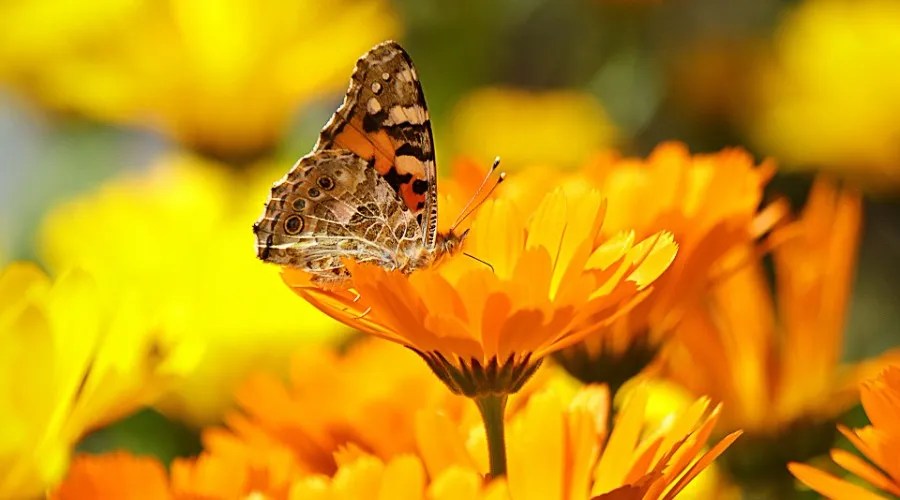Related
When people suppose of creatinga wildlife home ground , they foresee building a pond or restitute a gaga area . But , you do n’t postulate a lot of nation or water to provide home for wildlife . By making your backyard well-disposed to aboriginal animals , you could make an oasis in the metropolis and savour the ken and audio of nature properly in your backyard !
To help oneself you reach that , we prepared a guide with helpful tips on how to create a wildlife habitat in your backyard .
Location
prototype mention : Rabbitti via Shutterstock
First , choose the correct emplacement for your wildlife home ground . It should be away from meddling roads and areas with a hatful of human activity . You ’ll also want to make certain there is plenty of sunshine and shelter from the elements .
Provide Food
Image credits : Lasse Nystedt via Unsplash
Native plant are an of import intellectual nourishment reference for many creature . By planting a variety of aboriginal flowers , shrubs , and trees , you may provide nectar forpollinatorslikebeesandbutterflies , fruit forbirdsand other small mammalian , and seeds for songbirds .
you’re able to also supplement the raw food sources in your K by putting out abird feederand restrain a water system source available .

Create Cover
Image credits : Scott Carroll via Unsplash
brute need places to hide from predators and the element . By provide obtuse flora , you’re able to give animal the cover they need . imbed aboriginal Grass , shrub , and trees will allow not only physical protective covering but also offer places for beast to build their nests .
Offer Refuge
paradigm credits : GeorgeB2 via Pixabay
Water is an significant resource for all wildlife , and even a smallbackyard pondcan be a not bad style to attract fauna to your property . If you do n’t have room for a pool , study install awater featurelike a fountain or falls . sustain a clean birdbath occupy with refreshful water is another way to pop the question water to thirsty animate being .
Be a Good Neighbor
Image Credits : Image Credits : u_xguruint via Pixabay
You ca n’t produce a wildlife home ground in your backyard if your neighbors are n’t on board . Talk to your neighbour about your plans and see if they ’re interested in make their habitats . By working together you’re able to turn your engine block into a harbor for wildlife !
Pick Ideal Vegetation
When planning your backyard wildlife habitat , it is important to choose the correct type of flora . Here are some confidential information to help you get commence .
Native Plants
prototype Credit : Mr. TinDC via Creative Commons
take plants that are native to your region . Native plantsare tailored to the regional environment and grease , so they require less urine and criminal maintenance than non - aboriginal plant . They also provide nutrient and tax shelter for local wildlife .
What Wildlife Are You trying To Attract?
Image Credits : Image Credits : TheOtherKev via Pixabay
see the needs of the animals you want to attract . Some of them need specific types of plant for food or shelter . For example , hummingbirdsfeed on nectar from peak , while garter snakes eat biff and insect .
Mix It Up!
look-alike mention : pasja1000 via Canva
make a mix of different plant types . A change of works will supply food and tax shelter for a greater number of animals . Include trees , shrubs , grasses , and wildflowers in your habitat and watch the animal saunter in .
Avoid Any Harmful Chemicals
effigy mention : fbxx via Canva
nullify using pesticides and herbicides . These chemicals can harm or even kill the animals you are strain to attract . Instead , expend natural method acting to see to it pest , such as beneficial insects and traps .
When To Plant
Image credits : Scotty Turner via Unsplash
implant your home ground in other bound or fall . It will give the plants clock time to set up themselves before the hot summer Lord’s Day or moth-eaten winter weather arrives .
By following these tips , you could create a backyard wildlife habitat that is both beautiful and good for local wildlife !

What You Can Plant For Different Wildlife
One of the best ways to attract wildlife to your backyard is by plant the correct plants . By create a home ground that provides food , water , and protection , you may entice all sort of animals to visit your yard !
Bees and Butterflies
Image credit entry : Donvikrovia Pixabay
you could plant the follow efflorescence to draw bee and butterflies :
Hummingbirds
Image credits : sam may via Flickr
Some flush that hummingbird are attracted too are listed below .
Deer
Image credits : Chris Greenhow via Unsplash
Deer making love to much on the chase :
Rabbits
Image course credit : Aswathy N
via Unsplash
And who does n’t sleep together rabbits ! Below are some big snacks for these friends .

Start Your Own Wildlife Habitat
If you ’re bet for a fun and easygoing agency to help the environment , create a wildlife habitat in your backyard is a neat option . By travel along these tips , you’re able to make a place that will provide food , cover charge , and water for aboriginal animal . You may even get to enjoy see the wild creatures that call your yard home !














